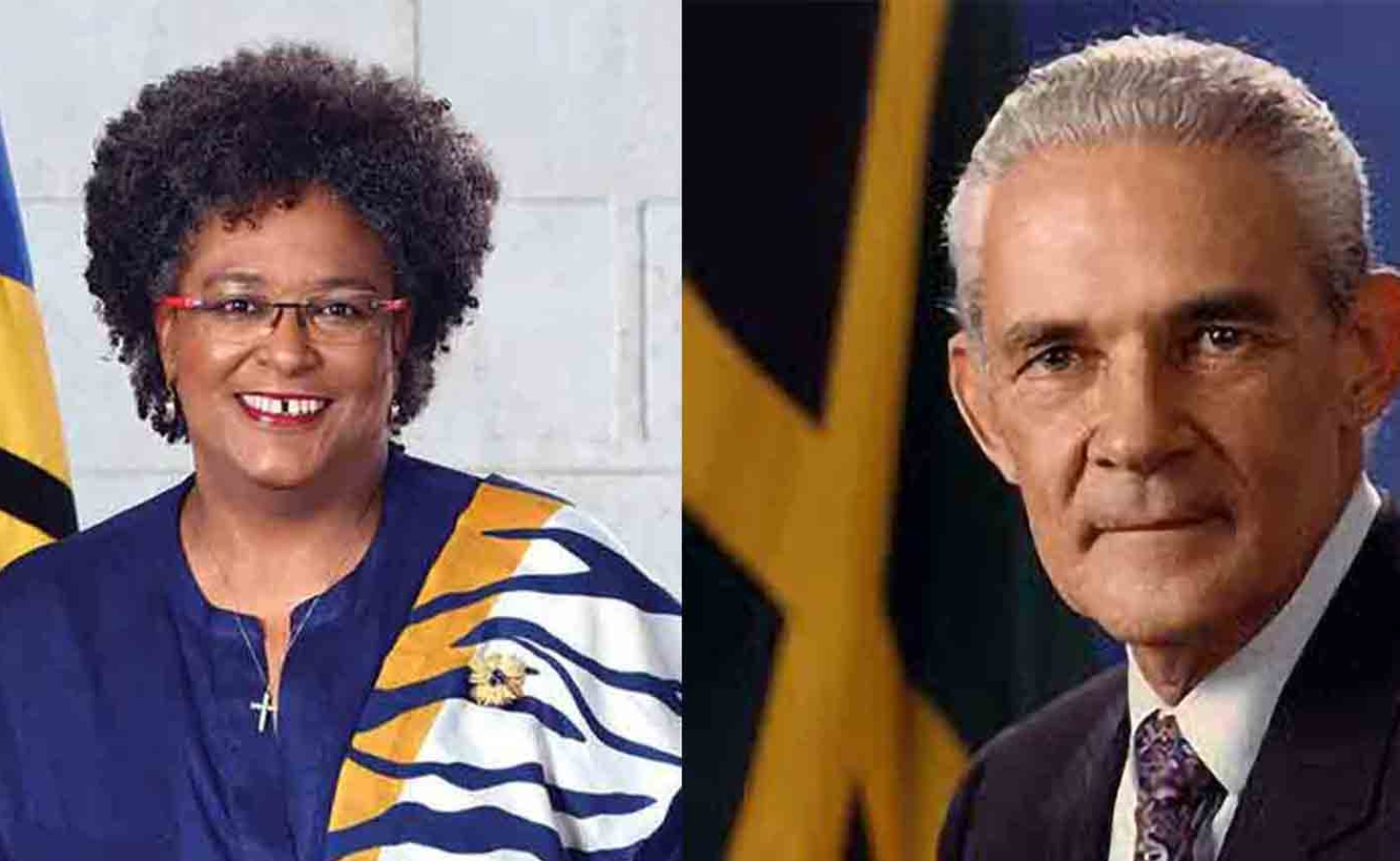CARICOM | Mottley Carries Manley's Torch: Caribbean Economic Independence in the Face of New Challenges

The following is an interview by Bill Moyers in conversation with Michael Manley, Prime Minister of Jamaica, on the emerging needs of a small island state in an inter-global society.
MONTEGO BAY, Jamaica April 6, 2025 - CARICOM Chair Mia Amor Mottley has unveiled an ambitious four-point strategy designed to protect Caribbean nations from the economic turbulence threatening the region's tourism-dependent economies under the new Trump administration.
In doing so, she continues the visionary work begun by Jamaica's Michael Manley some fifty years ago. "We must build our ties with Africa, Central and Latin America, and renew those ties with some of our older partners around the world," declared the Barbadian Prime Minister last week.
Her words deliberately echo Manley's pioneering calls for South-South cooperation, placing diversification of trade partnerships at the cornerstone of her vision for regional resilience.
Mottley's comprehensive plan aims to liberate Caribbean economies from their historical dependence on American markets—a vulnerability she candidly described as "a legacy of our colonial dependence."
This recognition that the region can no longer afford to "rely solely on one or two markets" reflects Manley's earlier insights about the dangers of economic monoculture. Instead, Mottley envisions Caribbean goods flowing to "a wider, more stable global market," creating a buffer against unpredictable shifts in U.S. trade policy.
Agricultural self-sufficiency constitutes the second pillar of Mottley's strategy. The existing "25 by 2025" initiative—aimed at reducing food imports by 25%—now appears "too modest" given current circumstances.
"We must grow our own and produce our own as much as possible," she insisted, challenging Caribbean nations to transform crisis into opportunity through increased local production. Her rallying cry—"buy local and buy regional"—serves as both economic strategy and cultural affirmation.
"The products are better, fresher and more competitive in many instances," she argued, framing consumer choices as acts of regional solidarity in the face of external pressure.
Regional unity stands as the third essential element of the plan, with Mottley warning against the temptation to "fight among each other for political gain" when collective action represents the only viable defense. "United, we stand and divided, we fall," she reminded her audience, invoking wisdom that transcends borders and political divides.
While bold and timely, Mottley's strategy deliberately builds upon the New International Economic Order articulated by Michael Manley during his tenure as Jamaica's Prime Minister.
Manley's vision for South-South cooperation and economic independence came during another period of global uncertainty, when newly independent nations and small developing states faced similar structural challenges on the world stage.
In carrying forward Manley's torch, Mottley adapts his foundational principles to address contemporary threats, demonstrating the enduring relevance of Caribbean economic sovereignty in an increasingly volatile global landscape.
The following is an interview by Bill Moyers in conversation with Michael Manley, Prime Minister of Jamaica, on the emerging needs of a small island state in an inter-global society.
-30-
